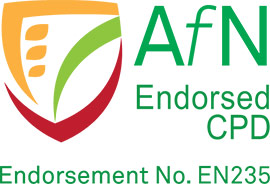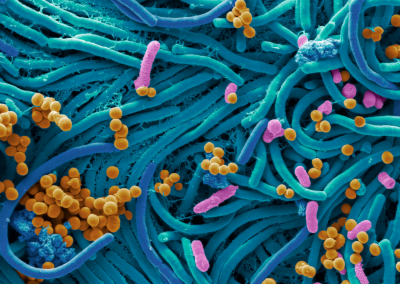
Free
60mins
UPFs or HFSS?
Are ultra-processed foods worse for our health than the fat, sugar and salt they contain?
Dr Duane Mellor
Tuesday 7 March 2023 20:00–21:00 GMT
CONTENT AND LEARNING OBJECTIVES:
The term ‘ultra-processed foods’ (UPF) has become the scientifically acceptable term to cover what many call ‘junk’ food, but how useful is it to classify foods in this way? Is UPF classification any better than existing ways to describe how diet and nutrition influence our health, or it is equally flawed?
Following on from our webinar looking at ‘Ultra-processed foods & heart health’, this Journal Club session discusses two papers published in The American Journal of Clinical Nutrition sharing opposing sides of a debate on the question, ‘Does the concept of “ultra-processed foods” help inform dietary guidelines, beyond conventional classification systems?’
We’ll discuss how research data is used to show the health effects of UPFs, as well as some of the key pros and cons of the classification system highlighted by the authors of the chosen debate papers.
Watch this webinar to
Gain clear understanding of:
- What is meant by ultra-processed foods
- How research data is used to show the health effects of ultra-processed foods
- Limitations and risks of defining foods as ultra-processed
Be aware of:
- How in defining foods as ultra-processed may led to stigma around food choice.
- Cost implications of reducing ultra-processed foods, both with respect to purchasing and preparation.
- Concerns about translating definitions of ultra-processed foods into a dietary pattern.
Be able to:
- Communicate messages about the effect of food processing in a balanced way.
- Consider how foods which are considered ultra-processed are also likely to be high in fat, salt and sugar.
- Explain that overall dietary patterns based on foods which are based on a variety of foods and are nutrient rich and generally less energy dense have the evidence for improving health.
Help us to continue providing expert nutrition learning
If MyNutriWeb has helped you deepen your knowledge of dietary and nutritional subjects, join us to help support and educate people to eat well for themselves and the planet. Read more...

Expert speaker
Dr Duane Mellor
Senior Lecturer and Associate Dean Public Engagement Aston Medical School, Aston University
Duane Mellor is a registered dietitian who is the Aston Medical School lead for Nutrition and Evidence Based Medicine. Having a background in clinical dietetics supporting people living with diabetes he moved into medical education when joining Aston University.
Paper reference
Does the concept of “ultra-processed foods” help inform dietary guidelines, beyond conventional classification systems? The American Journal of Clinical Nutrition, Volume 116, Issue 6, December 2022
1. Argument for YES – Carlos A Monteiro, Arne Astrup, Does the concept of “ultra-processed foods” help inform dietary guidelines, beyond conventional classification systems? YES, The American Journal of Clinical Nutrition, Volume 116, Issue 6, December 2022, Pages 1476–1481, https://doi.org/10.1093/ajcn/nqac122
2. Argument for NO – A Astrup, C A Monteiro, Does the concept of “ultra-processed foods” help inform dietary guidelines, beyond conventional classification systems? NO, The American Journal of Clinical Nutrition, Volume 116, Issue 6, December 2022, Pages 1482–1488, https://doi.org/10.1093/ajcn/nqac123

About Journal Club Chair, Dr Caroline Childs
Each Journal Club session is chaired by Dr Caroline Childs, Nutrition and Metabolism subject lead in Medicine at the University of Southampton. She received student-nominated awards for ‘most engaging lecturer’ and ‘best pastoral support’ and a colleague-nominated award for teaching excellence. Dr Childs is a Nutrition Society Ambassador and a South East Regional Representative for the Association for Nutrition.
As she says, “Developing skills in critical appraisal is an essential part of being a competent nutrition professional – whether you’re a dietitian, nutritionist or health professional specialising in nutrition.”
APPRAISING RESEARCH PUBLICATIONS
Nutrition research reported in the media often highlights mixed or contradictory results between studies. So, as a nutrition professional, how can you ensure you use the strongest available evidence to inform your practice?
CPD CERTIFICATE & LEARNING MATERIALS
This webinar has been approved for CPD by the AfN

Once you have viewed a full recorded session the mynutriweb team will review and arrange to send you your certificate via email from hello@mynutriweb.com within two weeks of viewing the session.
Popular Now

Non-Alcoholic Fatty Liver Disease and Nutrition

Yakult Science Study Day

Protein: for exercise performance and recovery
This website is intended only for students or professionals working in food, nutrition and health. If this is you, please click to continue.



